2015 Woman We Love Leanne Pittsford created Lesbians Who Tech after realizing that every time she met another queer woman in the industry, they felt like they were one of very few. Now a national organization with regular meet-ups, parties and events, Lesbians Who Tech offers a chance for LGBTQ women to connect, network and build community that wasn’t previously accessible.
This past weekend, thousands of LGBTQ women and allies gathered in San Francisco for the annual Lesbians Who Tech Summit, where attendees had the opportunity to listen to leaders in their respective fields, including former White House CTO Megan Smith and Black Lives Matter co-founder Patrisse Cullors, with TED-talk style conversations and presentations on topics related to being a queer woman working in technology and living in the world. GO was there, and we grabbed a few minutes with Pittsford to talk about reaching her goal of 50 percent women of color speakers, putting the word “lesbian” in their name and their upcoming mentorship effort, Bring a Lesbian to Work Day.
Leanne Pittsford: I mean, I don’t think anyone can really imagine it, right? Even the first year, when we didn’t know how many people would show up, even having 800 people here—they’re used to being the only woman in the room, especially the technologists on an engineering team. It’s a rare day when they see more than one woman, let alone being in a room full of women. And you come to the Castro and it’s all gay boys, which is why I love having it here, like all the gay restaurant owners and bar owners—it’s like the lesbian apocalypse, and they don’t even know what’s happening. When people come they—lesbian stuff tends to be–there’s a range of how great it can be and how not great it can be, and so I think people are skeptical, and they get here, and their minds are totally blown. Because even when they hear or watch the videos—and that’s why we try so hard to get people here. I’ve bought so many people flights: “Just come, I know you’ve been to lot’s of LGBTQ things for women, and they’re not the best, and I get it, but just one more time.” And there’s been so many people that have given us that one more time and they’re lifers.
GO: Lesbians Who Tech met the goal of having 50 percent women of color speakers this year. Representing the broad community that we are can be a difficult task. I’m curious as to how you’ve been able to do that logistically, and how hard it has been.
LP: I think from a foundational perspective because I’d worked in gay rights before I knew it was going to be a challenge. It was something I was surprised. The gay world was white, male—that’s what it was. Going into it, I knew that if we wanted to build a community that was intersectional, it had to be intentional. And I also, because I’d been in the gay community so long, I felt like gay men didn’t understand that they need to show up for us first. They sort of like, “Well, you didn’t come. I asked one woman to speak, and they didn’t show up.” There’s just this entitlement, and I felt that as a woman working in LGBTQ rights and I wanted to make sure people of color knew we were starting from a place of building trust. So you know, most of our women of color, that first year, I went to their events. I saw them speak. I went up to them afterward and said “I really loved your talk. Would you be willing to speak?” I showed up for them first, if I could in ways, and really talked to them and made sure they saw it was a really strong priority and even talked about our goals from the beginning. More white women apply—still, always—more white women apply to speak because that trust is broken. I think that’s the thing people don’t realize when you’re working with underrepresented groups. It’s not like you build a cool space and they come—you literally have to go to their first and build trust, and then you can have the community. I still wish LGBTQ men—there are some here and they’re my favorite; lezbros—but in general, I don’t think men understand. They have never been the five percent in the room. They’ve never felt it.
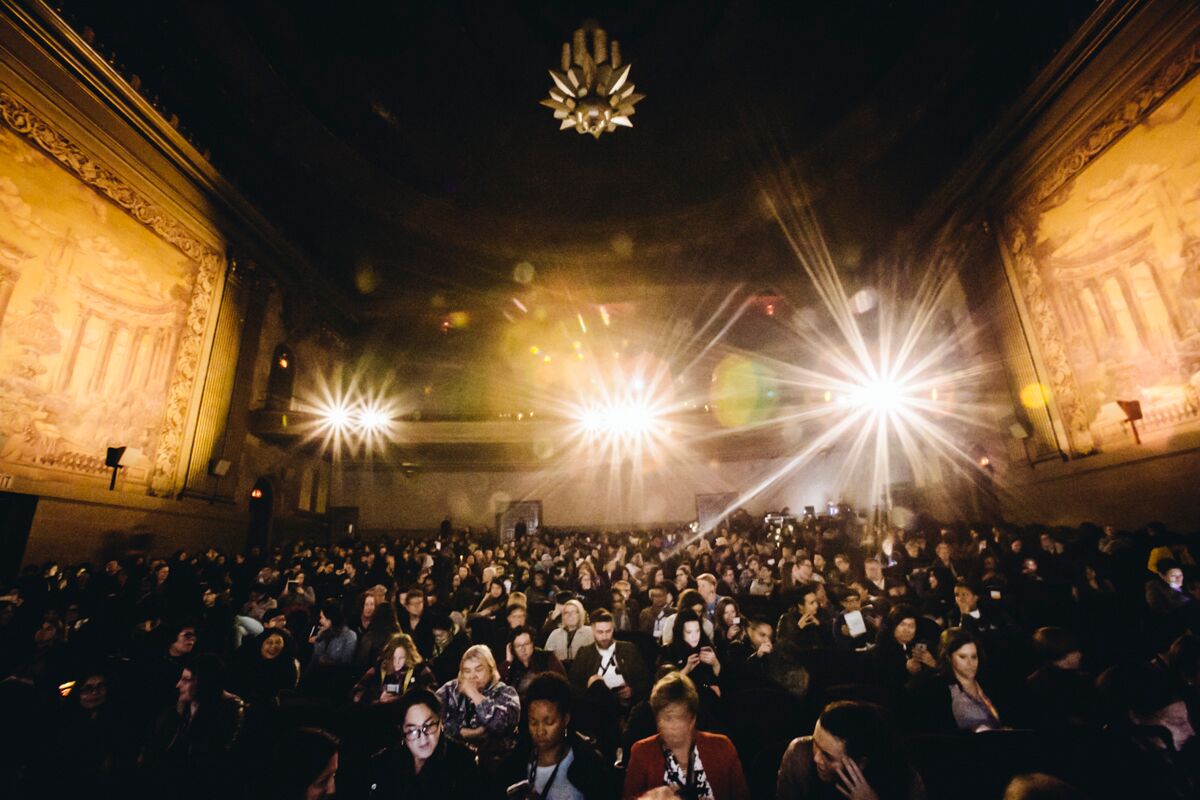
GO: Let’s talk about the name, Lesbians Who Tech. “Lesbian” can be so polarizing for some people, for better or for worse, so can you explain the process?
LP: I actually just wrote a blog post. I wrote it a long time ago but just published it: “Lesbians Who Tech vs. Queer Women Who Tech: What’s in a Name?” I’ve lost many sleepless nights over the name. I got many emails in the beginning, especially from bisexual women, and really thought about it. At first, it was sort of like, I worked in a queer space, and I saw how polarizing it could be. It was so generational and anyone over, at the time, 35, they would just be team lesbian, and anyone younger would be team queer, and if you were in Brooklyn, it would be team queer no matter what, based on age and geography. I felt like the lesbian word was dying. I talked with a lot of leaders in the space, and they chose to keep the word, not because they want to be exclusive and not inclusive but because they want to make sure the word doesn’t die. Literally, the word lesbian is 95 percent tagged as porn on the internet. That’s real. I mean, we get spammed so much because the internet, from an algorithm perspective, considers our name porn. We’ve gotta figure that out because our spam just increases and increases the more successful we become, because it’s like that tag–there’s literally nothing else on the internet besides us and a few blogs. We have over 100,000 likes on Facebook, and I’m sure part of that is directly correlated to people thinking we are porn. Best case scenario maybe we do, but odds are, there’s gotta be something there.
Basically, I am anti-acronym, from a marketing perspective. Lesbian, you just know what it means; it’s a word that I don’t love. It’s a lot of syllables, but I felt like what if we could reclaim it? And for some women, queer really is derogatory and Queer Women Who Tech—it’s a little long from a marketing perspective. And I think there’s something sticky when you say “lesbian.” People are like “What? There’s a professional thing that’s connected to that?” I think there’s a ton of power in that. So we basically say Lesbians Who Tech, and we say queer in everything we do, and we use both, and we try to show people that we’re an inclusive space, also acknowledging there’s no perfect solution for this, and I’m still not happy about it. I acknowledge we try to do the best we can and there’s always room to improve. I’m always open to—I’ve literally written hundreds of emails. My blog has a sample email of what I said, listing all the things—I was like “Look, if you have better suggestions besides BLT Tech, which literally I got once, let me know.” I just haven’t been able to figure that out. And it is hard. All underrepresented groups, we kind of fight with each other and distract—what breaks my heart is when bisexual women feel they’re not welcome here, and that’s heartbreaking. You’re absolutely welcome here; we use both names; we have transgender women, bisexual women—we’re trying to get better about that part of the representation game.
We’re starting a program called Bring a Lesbian to Work Day, and it’s totally offensive; like it’s offensive, right? And that’s part of our schtick, because it’s also sticky. Like I’m willing to—we’re not willing to sacrifice our values, but we’re willing to be slightly offensive in the funny, offensive realm. It’s memorable, and people are thrown back and then have really interesting conversations because of it. Even if you’re sort of like “Ugh, like Bring Your Kid to Work Day? Now you’re making me a child?” It’s like OK, I get it but it’s also something that’s universal. Everyone knows what bring someone to work day is; you bring someone to work. You get it, and that power in scaling an idea is limitless.There’s no money that can put something on that and all the good you can do because people get it. Explaining an idea from a marketing perspective—basically the idea never happened. So we’re just constantly balancing that, and we’re all about being in your face. I think it works for us in a way, as long as we’re still representing with 50 percent women of color, trans people and all of the other things.
Watch more videos from the Lesbians Who Tech Summit and visit LesbiansWhoTech.org for information on future events.

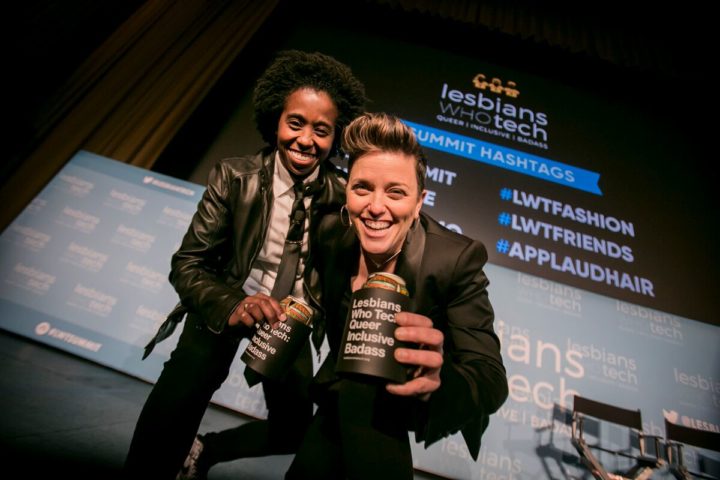
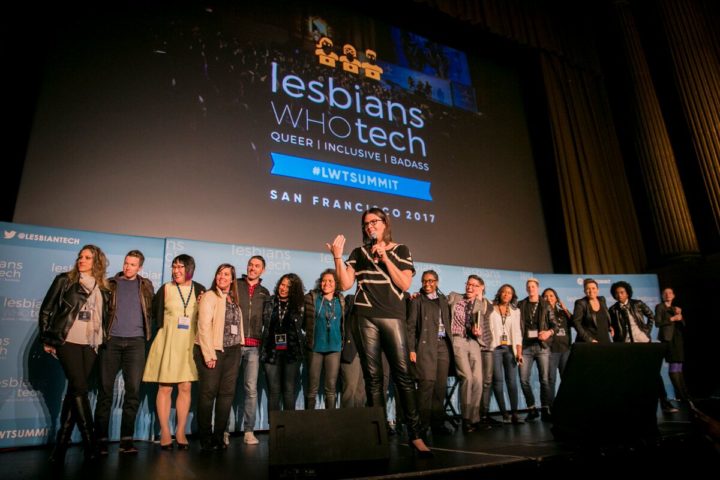
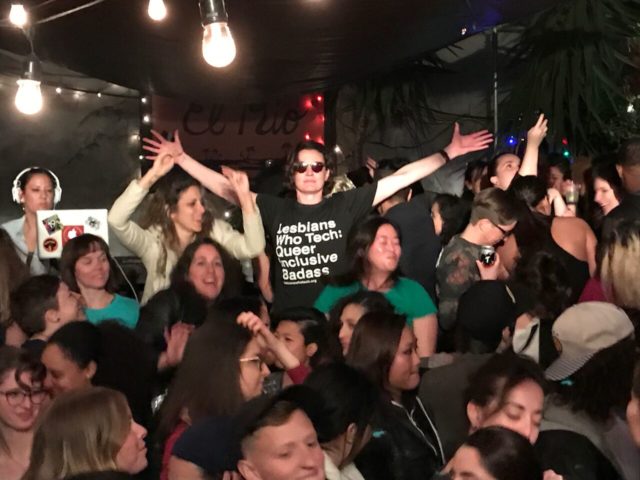
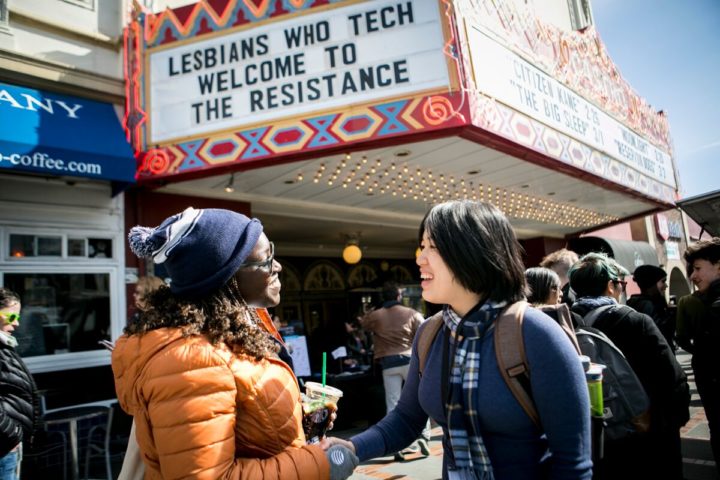
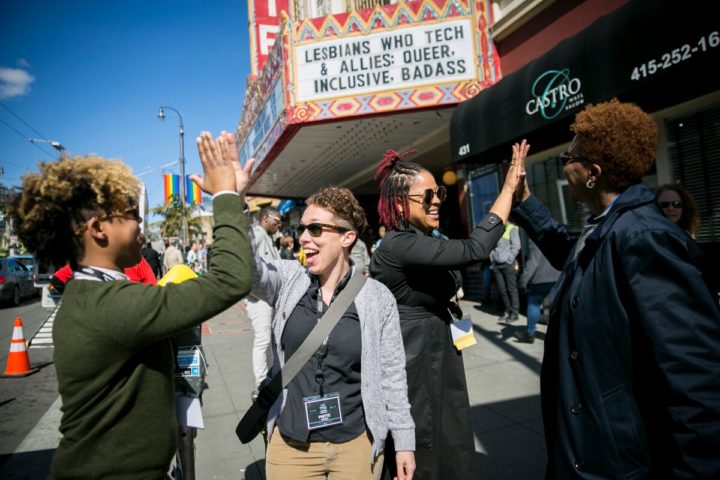
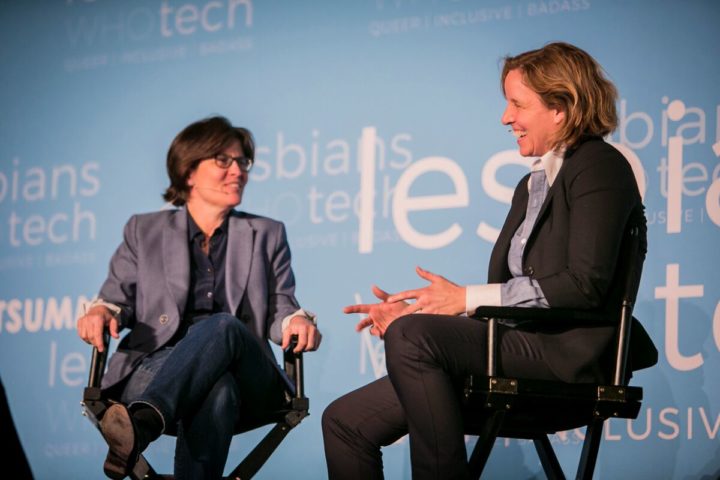
What Do You Think?